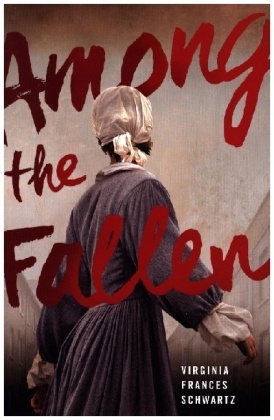| Verlag | Penguin Random House |
| Auflage | 2023 |
| Seiten | 304 |
| Format | 13,9 x 20,9 x 2,0 cm |
| Gewicht | 274 g |
| Artikeltyp | Englisches Buch |
| EAN | 9780823451098 |
| Bestell-Nr | 82345109EA |
Orpha doesn't speak about what got her into prison.
No one would listen.
No one would believe her.
Haunted by nightmarish flashbacks and withering in the miserable conditions of Tothill prison, 16-year-old Orpha perseveres, doing what she can to befriend and protect the other girls imprisoned alongside her.
But then a mysterious letter arrives, offering her a place at a women's home called Urania cottage. It sounds too good to be true--but with nowhere else to go, Orpha decides to take her chance. Soon she discovers the letter-writer is none other than Charles Dickens.
With the support of the other women of Urania and the promise of a real future, Orpha will have to confront the darkest parts of her past-- and let go of her secrets.
This atmospheric historical novel, full of heartbreakingly real characters, celebrates the strength and resilience of young women throughout history. Virginia Frances Schwartz's powerful prose, structured to ech o Dickens' serialized style, illuminates an era of startling inequality and extreme poverty. Fans of Laurie Halse Anderson's Fever 1793, Margaret Atwood's Alias Grace, and Katherine Paterson's Lyddie will enjoy this riveting title.
Rezension:
"Any enthusiasts of the Victorian era will be delighted by the attention to historical detail in this novel. . . . In addition, the use of Victorian slang and the skillful use of figurative language provide great authenticity to the way in which Orpha and the other characters interact with one another. Despite the seriousness of the topics of sexual abuse, poverty and prostitution featured in this story, the overall message is one of hope and transformation." Canadian Children's Book News
"[A] sophisticated, compelling and troubling work that will appeal to older teens, especially girls, and to adults who appreciate historical novels. . . . Thanks to her extensive research and skilled storytelling techniques, Virginia Frances Schwartz has depicted the plight of the Victorian poor with gritty realism. . . . older teens and adults will find it gripping." Canadian Review of Materials
"Orpha s narration is initially cool and detached as she observes the prison s routines and her fellow inmates roles with calm resignation, but flashbacks to her sexual abuse by her uncle are panicked and visceral, belying the trauma that lies underneath her composure. . . . Like many Dickensian tales, this gives an unflinching look at the poor and destitute of the Victorian era but also paints a picture of hope in charity and compassion. An author s note gives more historical information, and a glossary of period slang is included, as is a pointer to a source." The Bulletin of the Center for Children's Books
"[Orpha's] struggle, colorful period detail, and the triumph of women so badly treated make for a fascinating read for those interested in women's history." Booklist
"Written in 20 chapters to mirror the installments in which Dickens released his novels, this atmospheric story is imbued with the sights, sounds, and smells (or more accurately, odors!) of 19th-century London's rookeries, or slums. Like Dickens, author Schwartz (Crossi ng to Freedom, 2013, etc.) evokes the moral and political forces of the time; readers, particularly Margaret Atwood fans, will find parallels to the present. This Dickensian #MeToo novel calls out the lingering need for women's rights." Kirkus Reviews

